FEBRUARY
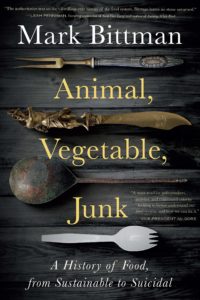
Mark Bittman, Animal, Vegetable, Junk: A History of Food, from Sustainable to Suicidal, HMH (February 2)
Having already published more than 20 books on food, cooking, and culture, Mark Bittman of The New York Times is back with the story of the human species through the lens of food and flavor. The many ways that human beings have obtained food, from hunting and gathering to agriculture and further technology, have shaped the course of history—this book argues that examining that history may hold lessons for our future, at a time when diminishing resources and climate change are ushering in a new era for our food systems. –CS
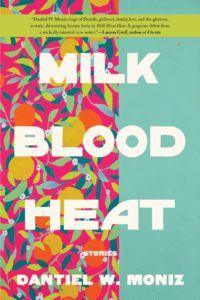
Dantiel W. Moniz, Milk Blood Heat, Grove Press (February 2)
In Moniz’s debut collection, girls seethe and women scorn in the houses and bars and schoolyards of Florida. In the first story, two girls mix their blood in milk and drink it to become sisters, and consider their options for death. In another, a mother works to earn back her daughter’s love after she breaks up their family, but settles for revenge instead. Every story in this book feels soaked with heat and blood and wanting and a slice—sometimes more—of danger. –ET
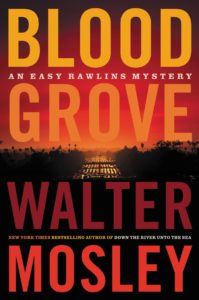
Walter Mosley, Blood Grove, Mulholland Books (February 2)
It is 1969, and we’re cruising along the fiery orange streets of California. No, unfortunately we are not time travelers. But we are (or will be!) readers of Mosley’s latest novel, which follows an iconic detective and his encounters with hippies, tycoons, sociopaths, cops, and grifters. It is a return to Mosley’s Easy Rawlins saga, and a novel that urges its readers to consider what it means to strive for justice, what it means to look at evil. –RS

Ben Okri, Prayer for the Living, Akashic (February 2)
The author of the highly-acclaimed The Famished Road, which won the 1991 Man Booker Prize, returns with a collection of short stories that meditates on the possibility of parallel realities, straddling the mundane and the surreal. Kirkus described the book as “mind-bending and provocative.” –RS
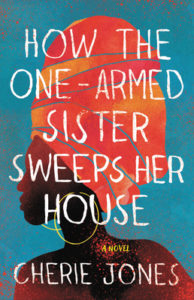
Cherie Jones, How the One-Armed Sister Sweeps Her House, Little, Brown (February 2)
I mean, just the title alone makes this book worthy of anticipation. It comes from the story Lala’s grandmother tells her at home in Baxter’s Beach, Barbados, about what happens to girls who go where they shouldn’t. I’m already intrigued, but then there’s Bernardine Evaristo calling it “a hard-hitting and unflinching novel from a bold new writer who tackles head-on the brutal extremes of patriarchal abuse,” so it has quickly become a shoo-in. –ET
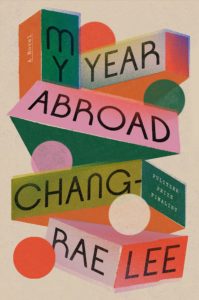
Chang-rae Lee, My Year Abroad, Riverhead (February 2)
I love Chang-rae Lee, not only because we share the same birthday but also because he has another novel coming out, and it is about a college student Tiller who suddenly gets folded into the life of Pong Lou, a Chinese American entrepreneur. Tiller follows Pong on a trip across Asia, which launches him into a world where he reconsiders everything anew and where we are left to ponder the longstanding effects of stereotypes, orientalism, capitalism, global trade, and mental health. It is a sweeping tale, one that will certainly sweep you off your feet. So, buckle in for the ride: we’re going on an adventure. –RS

Alison Wisdom, We Can Only Save Ourselves, Harper Perennial (February 2)
A captivating, unsettling novel about a teenage girl who seems to have everything—but who is lured away from it by a charismatic older man, and drawn into an exciting but dangerous lifestyle. Narrated by the mothers of Alice’s hometown, the vibe is The Virgin Suicides meets The Girls, and the ending will surprise you. –ET
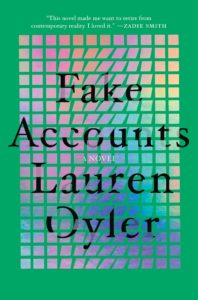
Lauren Oyler, Fake Accounts, Catapult (February 2)
As others have noted, it’s hard not to be interested in the debut novel by the (arguably) meanest reviewer in the literary landscape. Unfortunately for anyone seeking schadenfreude, or revenge, it is an absorbing, intelligent, charmingly meta novel about what it’s like to live right now, both on and off the internet. If it’s not autofiction, it seems like something very close to it, and there are certainly comparisons to be made to Ben Lerner here (he is even pointedly evoked in the novel’s early pages), but if Lerner’s Adam is the baseline, Oyler’s narrator tones down the pomposity and turns up the humor, as well as the emotional messiness. Ultimately, it’s a book about the layers of artifice inherent in getting up every morning, which is something we can all relate to. –ET
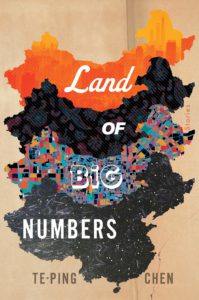
Te-Ping Chen, Land of Big Numbers, Houghton Mifflin (February 2)
This collection of stories has been heralded by this year’s National Book Award-winner, Charles Yu, as “immensely rewarding, from the first sentence to the last.” I trust him! In Land of Big Numbers, Te-Ping Chen takes us to China and introduces us to a lively cast of characters: a man trying his hand at the stock market, a stalker and his prey, a political activist, a professional gamer—we’re just getting started. As a former foreign correspondent, Te-Ping Chen is well acquainted with the geography of the place and the people, and her intimate knowledge is sure to shine through in this debut. –KY

Brontez Purnell, 100 Boyfriends, FSG Originals (February 2)
This book is, as the kids say, A Mood. First, there’s the dedication: “Fuck all y’all.” Then, the vignettes, which include boyfriends, tenderness, humor, despair, rage, grime, ecstasy. Justin Torres compared it to “a good lover, at turns vulgar and vulnerable, dirty and desperate, and always grinding toward magic.” That is, unlike anything you’ve read before, and just waiting to change you. –ET
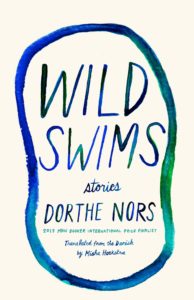
Dorthe Nors, tr. Misha Hoekstra, Wild Swims, Graywolf (February 2)
I’m a huge Dorthe Nors fan! If you are not, this surely means that you have not read her work, and in that case, I envy you because you have a joyful journey ahead. How do I describe the quiet brilliance that is Dorthe Nors? To say that she gets to the heart of human loneliness and desire is too cliche for the way she bends language. She is a master of tracking the hits and misses of human connection. If she were a surgeon, she would cut with the cleanest of lines. Have I convinced you? I highly recommend that you pause your scrolling of this list to read Karate Chop. And then Mirror, Shoulder, Signal. And then you should read So Much for That Winter, and hopefully by that point, her new collection of stories will be birthed into the world! –KY

Melissa Broder, Milk Fed, Scribner (February 2)
Melissa Broder fans, take heart! If you’ve been doom-scrolling through @sosadtoday all of quarantine, here is a reason to stop screaming into the void for a second. Yes, the wonderfully weird and erotic mind behind The Pisces is back with vengeance. Milk Fed tells the story of 24-year-old Rachel, lapsed in her Judaism, strict in her calorie-counting. And then she finds love (and maybe god?) in a frozen yogurt shop. Only Melissa Broder could dig into our obsessions, the ways our parents have ruined us, and blossoming queer love with such a bold panache. –KY
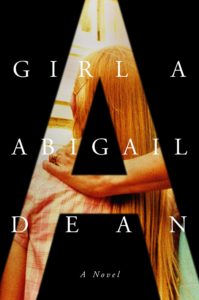
Abigail Dean, Girl A, Viking (February 2)
Abigail Dean’s intense debut begins with a settling of affairs: Dean’s central character, Lex Gracie, has been named as the executor of her mother’s will, and her new duties bring up some horrific childhood memories: she and her siblings grew up in a House of Horrors (based loosely on the Turpin Family), where they were chained to their beds and starved until Lex was able to escape and rescue the others. In order to settle her mother’s affairs, Lex must reconnect with her brothers and sisters, who are all dealing with long-term traumas and deep-seated resentments of their own, as the world outside continues to exploit them for their memories. –MO
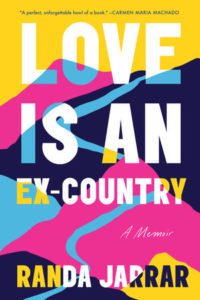
Randa Jarrar, Love Is An Ex-Country, Catapult (February 2)
After publishing a novel and a collection of short stories, Jarrar brings us a memoir about her cross-country road trip, in which she maps out what it means to claim joy in a hostile America. She has been described as a “fearless voice of dissent” and offers an unflinching perspective on domestic violence, single motherhood, and sexuality through her intersecting identities—queer, Muslim, fat, Arab American. Carmen Maria Machado described Love is an Ex-Country as “a perfect, unforgettable howl of a book.” –RS

David Duchovny, Truly Like Lightning, FSG (February 2)
Guffaw if you must, but having begun his literary fiction career with the, eh, singular barnyard fable Holy Cow: A Modern-Day Dairy Tale, Duchovny the writer has actually gone from strength to strength, with each new novel receiving markedly better reviews than the last. 2018’s New York-set supernatural love story, Miss Subways, was called “a witty and profound showstopper” by the San Francisco Chronicle and “a spooky domestic drama that is equal parts Nick Hornby and Neil Gaiman.” Duchovny’s latest is the tale of a former Hollywood stuntman and converted Mormon who has been peacefully homesteading in the California desert (with his three wives and ten children, of course) when a young developer with a dangerous ultimatum appears to upend his tranquil new life. Will Truly Like Lightning be any good? I want to believe. –DS

Olga Tokarczuk, tr. Antonia Lloyd-Jones, ill. Joanna Concejo, The Lost Soul, Seven Stories (February 2)
“Once upon a time there was a man who worked very hard and very quickly, and who had left his soul far behind him long ago. In fact his life was all right without his soul––he slept, ate, worked, drove a car and even played tennis. But sometimes he felt as if the world around him were flat, as if he were moving across a smooth page in a math book that was covered in evenly spaced squares…” Nobel Prize-winning Polish novelist Olga Tokarczuk is one of the most brilliant novelists writing today, and the idea that she has written a book that’s possible to read to my kids (with pictures!) fills me with immense joy. –EF

Catie Disabato, U Up?, Melville House (February 2)
I adored Catie Disabato’s wildly playful debut The Ghost Network, detailing a fan’s obsessive quest to locate a missing pop star named Molly Metropolis, rumored to have vanished into a lost section of the Chicago train system, and I had a lot of fun drawing the eye from the cover on a staff selection. Now, I’m close to finishing U Up?, her ice-cold sophomore novel of love and loss in LA, and I’m rather annoyed at having to stop reading it to write this blurb. In U Up?, the Very Online and very traumatized Eve can see ghosts, and one of them—her best friend, Miggy—keeps up from the other side by texting. A lot. Eve’s other best friend is missing on the anniversary of Miggy’s death, and Eve must confront her fears, her ex-girlfriends, and many, many ghosts, as she winds through the vibrant LA queer scene, refreshing her Instagram and delving deep into her soul in search of a terrible truth. –MO
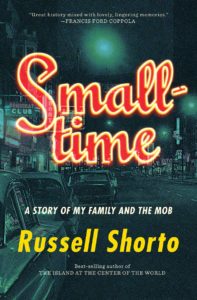
Russell Shorto, Smalltime: A Story of My Family and the Mob, Norton (February 2)
Growing up, Russell Shorto knew he was named for Russ Shorto, a mobster who ran a small criminal empire in Johnstown, Pennsylvania, but it wasn’t until recently that he started to get curious enough to look into the matter. Smalltime promises to be a lively journey into the illicit pastimes of factory towns in decades gone by, and the charismatic leaders of the underworld who lived to provide such entertainment. –MO

Ibram X. Kendi and Keisha N. Blain, eds., Four Hundred Souls: A Community History of African America, 1619-2019, One World (February 2)
To create this “community history” of 400 of African Americans, editors Kendi and Blain called on 90 different writers, each of whom took on 5 years in this epic story. As the publisher explains: “The writers explore their periods through a variety of techniques: historical essays, short stories, personal vignettes, and fiery polemics. They approach history from various perspectives: through the eyes of towering historical icons or the untold stories of ordinary people; through places, laws, and objects. While themes of resistance and struggle, of hope and reinvention, course through the book, this collection of diverse pieces from ninety different minds, reflecting ninety different perspectives, fundamentally deconstructs the idea that Africans in America are a monolith—instead it unlocks the startling range of experiences and ideas that have always existed within the community of Blackness.” This volume is exciting in both content and form: it is a story we need, told in a brand new way. –ET

Yusef Komunyakaa, Everyday Mojo Songs of Earth: New and Selected Poems, 2001-2021, FSG (February 2)
Yusef Komunyakaa’s poems reveal a unique understanding of the landscape of morality and justice in America; this collection brings together some of his most essential from the last two decades, a gift for both fans and newcomers alike. The result is a well-deserved testament to the power and weight of his work. –CS
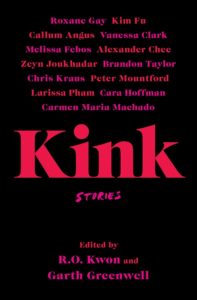
R.O. Kwon and Garth Greenwell, eds., Kink, Simon & Schuster (February 9)
The Bad Sex Awards were canceled this year, but the shame and fear around writing sex still lingers: how do you write the illogical logic of desire accurately, meaningfully, without being—God forbid—weird? This anthology shows us how, assembling stories about love and lust from a powerhouse lineup that includes Alexander Chee, Roxane Gay, Chris Kraus, Carmen Maria Machado, Larissa Pham, and Brandon Taylor. Edited by two writers whose work takes sex seriously, Kink makes a case for sex’s place in literary fiction. –WC

Robbie Arnott, The Rain Heron, FSG Originals (February 9)
It’d be hard for me to come up with a more compelling premise for a novel that I want to read RIGHT NOW: a solitary protagonist living on the frontiers of a failed state survives in the wilds by fishing and hunting until—uh oh—drama comes to the mountain forests in the guise of soldiers in search of the titular animal, which may or may not be magical; a quest ensues. This is young Australian novelist Robbie Arnott’s second novel and yes, I am eager to read it. –JD
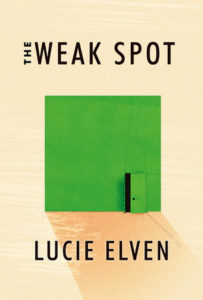
Lucie Elven, The Weak Spot, Soft Skull (February 9)
You might say there’s something eerily prescient about a surreal story housed at a pharmacy. Pandemic aside, there is a kind of magic all-knowingness to Lucie Elven’s writing. The Weak Spot takes us to the heart of a village where a young woman comes to apprentice at a pharmacy and loses herself in the ailments—and other aches, pains, and worries—of the townspeople. (I’m guessing if you liked Sue Rainsford’s Follow Me To Ground, you will love this.) This fable-like tale just might be the anecdote you need these days. –KY

Jen Silverman, We Play Ourselves, Random House (February 9)
In Silverman’s debut novel, Cass is a rising star on the New York theater scene—until she pokes her rival in the eye and winds up ostracized all the way to the West Coast. There she meets a filmmaker constantly flanked by teenage girls, the stars of her quasi-documentary. This is a novel about what it might really mean to be an art monster. Or at least a monster who makes art. –ET
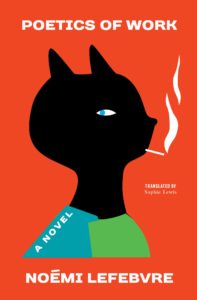
Noémi Lefebvre, tr. Sophie Lewis, Poetics of Work, Transit Books (February 9)
This novel begins in a place that is all-too-relatable: protesters and police are fighting it out in the streets, and a poet is unable to find a job. Naturally, the poet smokes a ton of weed and turns their attention to accounts of living under Nazi occupation. Poetics of Work promises to be a wise and wonderful satire of nationalism, capitalism, gender, and the language that we use to talk about these things. –KY

Elvira Navarro, tr. Christina Macsweeney, Rabbit Island, Two Lines Press (February 9)
Think of something weird. And then think of something weird to happen to that something weird. And now put a jaunty hat on it. You didn’t even come close to the satisfyingly off-kilter stories that await you in Rabbit Island. These stories feature maddening experiments on isolated islands, floating grandmothers, extinct (?) creatures, and things growing out of people’s body parts that should absolutely not be growing there! To read this collection is to become, for a brief moment, a visitor of said isolated island. Elvira Navarro’s prose, beautifully translated by Christina Macsweeney, is transportative. –KY
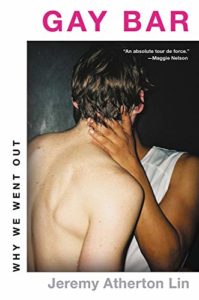
Jeremy Atherton Lin, Gay Bar: Why We Went Out, Little Brown (February 9)
The coronavirus pandemic has threatened the existence of so much of the restaurant and nightlife industry, but one corner of it is particularly vulnerable—the gay and lesbian bars that have been essential community spaces for decades—and this year has brought renewed calls to support them, from The Lesbian Bar Project and others. Jeremy Atherton Lin’s Gay Bar comes at a particularly good time to reflect on these spaces; his exploration of their history and mythology, interspersed with stories of his own many nights out, is also a reminder of how important it is that these bars survive. –CS

Elizabeth Knox, The Absolute Book, Viking (February 9)
Like everyone else who reads about books on the internet, I’ve been anticipating this book since Dan Kois wrote about it last January. “The experience of reading the New Zealand writer Elizabeth Knox’s contemporary fantasy novel The Absolute Book reminded me of how I felt reading Jonathan Strange and Mr. Norrell or The Left Hand of Darkness or His Dark Materials or, to move out of genre, Life After Life or The Underground Railroad,” he wrote. “I felt that my position in relation to the book’s capacious intellect and imagination and moral purpose was a vertiginous one. It was thrilling and frightening, reading this book.” My word, is that a good recommendation. Obviously, it has since gotten itself a publishing deal, and soon, it will be in my brain. –ET

Vendela Vida, We Run the Tides, Ecco (February 9)
If you can’t get enough ’80s nostalgia (and I count myself among you), Vendela Vida’s latest will scratch that itch. In this tense story of teen female friendship and betrayal in the pre–tech bro years of San Francisco, BFFs Eulabee and Maria Fabiola have a dramatic falling out that’s followed by Maria Fabiola’s disappearance. Early readers have been responding with ALL CAPS–level excitement; my curiosity is suitably piqued. –ES
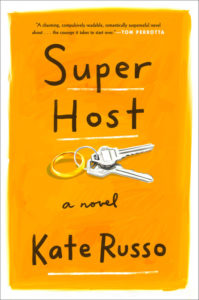
Kate Russo, Super Host, Putnam (February 9)
Funny, sharp, and artistic—like Russo herself—this debut novel follows Bennett Driscoll, an artist in the periphery of his own once-successful career and marriage, who, for cash, rents his London residence on “AirBed” a vacation rental site. Now, instead of looking for reviews of his art, he stalks AirBed reviews that a cast of characters leaves in their wake. Underneath lurks the question some contemporary artists and writers ask themselves: if I am not discussed, do I exist? Bennett’s fall from art society grace unravels as he finds himself on the periphery of his own home, on the outside looking in to many things beyond his kitchen. What purpose has he then? Is painting vegetables as meaningful as painting nudes? A wonderful book flanked with irony, perversity, Rear Window voyeurism, and women who understand the task of reinvention, Super Host is a case study of what we talk about when we talk about success. –Kerri Arsenault, Contributing Editor
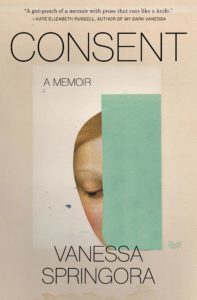
Vanessa Springora, tr. Natasha Lehrer, Consent, HarperVia (February 16)
Last year, Julliard Publishing director Vanessa Springora sparked conversations across France when she detailed being groomed as a 14-year-old by the writer Gabriel Matzneff in her memoir Les Consentement. The memoir both indicts the literary world that allowed rampant child abuse to occur in public, and meditates on love, consent, and healing. Now, we’re able to read it in English, and we’re better for it. –WC

María José Ferrada, tr. Elizabeth Bryer, How to Order the Universe, Tin House (February 16)
I don’t want to say too much about this tiny novel—a one-sitting read if ever there was one—but it concerns M, a 7-year-old girl, who tags along with her father, D, a traveling salesman. Of course, things are about to change in this funny, resonant little book. –ET

Henry Louis Gates Jr., The Black Church, Penguin Press (February 16)
We wouldn’t normally recommend the companion book to a PBS show, but when the documentary in question is produced, hosted, and written by Henry Louis Gates Jr., exceptions can be made. The story of the Black church in America, while centered in a deep and resilient faith, is also one of justice, struggle, and survival. Gates Jr. surveys 400 years of worship and endurance, mapping through song and story the long difficult journey from slavery to Reconstruction, from Jim Crow to the civil rights movement, all the way to a tumultuous present in which justice is no less urgent and holy a calling. –JD
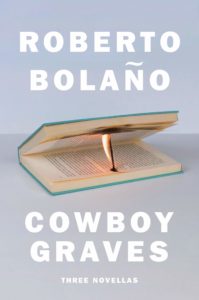
Roberto Bolaño, tr. Natasha Wimmer, Cowboy Graves: Three Novellas, Penguin Press, (February 16)
I must, shamefully, confess my lateness to the raucous Bolaño party, having picked up one of his books for the very first time at the beginning of the pandemic. Unsurprisingly, I’m now completely obsessed, and am greedily working my way through the late Chilean’s prodigious back catalog. Cowboy Graves—which must surely be in contention for both the best book title and the best book cover of 2021— is a collection of three dark and uncanny tales, thematically linked around political upheaval. As I now know, any newly-translated Bolaño work is a cause for celebration, and I am itching to get my hands on this one. –DS
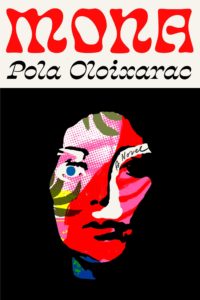
Pola Oloixarac, tr. Adam Morris, Mona, FSG (February 16)
I’ve been hearing very good things about this novel, Oloixarac’s third, in which a Peruvian writer gives up California for Sweden, where she has been nominated for a prestigious prize, and which apparently has a good deal of fun at the expense of “the contemporary literary culture.” Also, not for nothing, I have received a tip that this novel includes a mention of Lit Hub, which may be the first time this website has appeared in a novel. Just a little something extra to anticipate. –ET
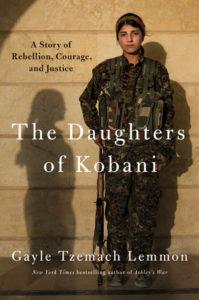
Gayle Tzemach Lemmon, The Daughters of Kobani: A Story of Rebellion, Courage, and Justice, Penguin Press (February 16)
Gayle Tzemach Lemmon’s reporting on foreign policy, gender, and economics has brought her across the globe and produced a remarkable body of work that includes her previous books, Ashley’s War: The Untold Story of a Team of Women Soldiers on the Special Ops Battlefield (2015) and The Dressmaker of Khair Khana (2011). Now, she turns her attention to a group of extraordinary women: the all-female militia that took on the Islamic State in the town of Kobani in northeastern Syria. Lemmon has an eye for the stories of exceptional women who use their ingenuity, strength, and grace in impossible circumstances, and this book is sure to show her reporting at its best. –CS

Brandon Hobson, The Removed, Ecco (February 16)
From the National Book Awards finalist comes a novel about a family reckoning with the tragic death of their beloved son. Drawing from Cherokee folklore, Hobson mines the lasting effects of trauma and grief, showcasing the quietly divergent paths of each family member—one struggling to manage a husband’s Alzheimers, another filling solitude with romantic fancies, and the other slipping into addiction. Here, we are witnesses to mourning. Here, we sit with the power and strength of personal and ancestral stories. –RS
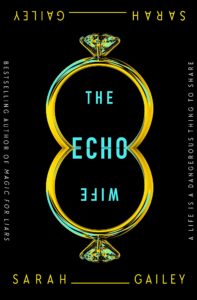
Sarah Gailey, The Echo Wife, Tor (February 16)
Sarah Gailey’s The Echo Wife is SO GOOD. Like, I don’t know the last time I read anything this well plotted. In The Echo Wife, a scientist renowned for her skills in cloning finds out her husband has been cheating on her—with her clone. When the clone kills the husband, the scientist has to cover it up, or else the investigation might ruin her reputation and cause the community to question the efficacy of her research. She’s also got a certain level of sympathy for her genetic twin; her husband’s clumsy attempt to grow the perfect wife hobbled his creation and made her miserable. Innumerable plot twists ensue, leading to a perfect set-piece of an ending. –MO
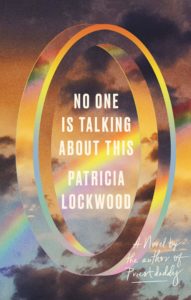
Patricia Lockwood, No One Is Talking About This, Riverhead (February 16)
The first half of the first novel by Lockwood—poet, memoirist, and chaotic-neutral Twitter personality—reads like a history of Being Online from the last five years. “Cat Person” is mentioned. The random time “This is Just To Say” became a meme is in there. Your reaction to this section will depend on your reaction to Twitter, at large, because this is as close as I’ve ever seen a book get to recreating the way the internet—mindless absurdity, stuff about butts, random profundity—feels. The second section, however, takes a turn, and you realize that recreating all that inanity had a point: to be held up against real, terrible, heartrending life. –ET
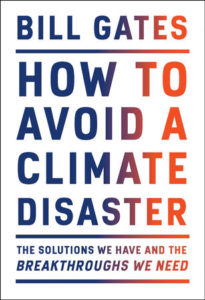
Bill Gates, How to Avoid a Climate Disaster, Knopf (February 16)
Generally speaking, I don’t want to hear a billionaire talk about anything unless it’s why he has decided to give away all, and I mean all, of his money and live penitently in the woods for the remainder of his days. There should be no billionaires, and if you are one, well, you are probably bad. Sorry, that’s just how it is. Having said all that, Bill Gates seems like a decent skin (his herculean philanthropic efforts over the past twenty years are nothing to be sneezed at) and his new book, if it lives up to its billing, is certainly something we could do with right now. A plan for how the world can get to zero greenhouse gas emissions in time to avoid a climate catastrophe, let’s hope How to Avoid a Climate Disaster can provide some of the direction we so desperately need. –DS

Honor Moore and Alix Kates Shulman, eds., Women’s Liberation!: Feminist Writings that Inspired a Revolution and Still Can, Library of America (February 16)
It’s hard to remember, especially if you weren’t yet born, about the rights women have not always enjoyed, the laws that undervalued women, or the cultural mores that subordinated us. I was born, grew up, and came of age in the tumultuous times this anthology covers (1960s-1990s) and these writings became foundational for me and millions of other women: Simone de Beauvoir, Kate Millet, Audre Lorde, Susan Brownmiller, Maxine Hong Kingston, bell hooks, (to name a few) and their texts about abortion, pornography, birth control, sexuality, identity, family, sexual harassment, the erotic, sisterhood, date rape, race, and a constellation of social justice issues precipitated a future more appealing than our past. It was here, within these ninety(ish) pieces, women began to subvert their position as Other through writing, meaning other than the default: men. Shulman and Moore have also been activists and participants in the feminist movement from the start, and created feminist literature themselves. Ordered chronologically, these pieces smartly convey the movement’s development; it’s important to know from whence feminism came in order to know where we are going, and this anthology sculpts a path for that to happen. –KA
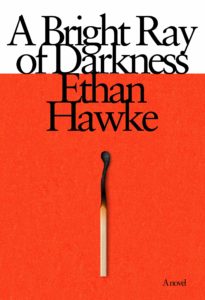
Ethan Hawke, A Bright Ray of Darkness, Random House (February 21)
I’ve made, and will continue to make, no secret of my love for Ethan Hawke’s myriad bookish ways. The four-time Oscar nominee’s literary bonafides are well-established at this point. We all know the man can write, just as we all know Gattaca is the greatest sci-fi movie of the last 25 years. I am not looking to debate these points, only to reiterate them. His latest novel, a fiery meditation on fame and celebrity, is the story of a tormented young actor making his Broadway debut in Henry IV just as his marriage is falling apart. I saw Ethan play Macbeth on Broadway a few years back, and he was superb, so I’m all-in on this. –DS

William J. Bernstein, The Delusions Of Crowds : Why People Go Mad in Groups, Atlantic Monthly (February 23)
I recently saw the moment we are living through described as the Era of QAnon and, frankly, I’m not happy about that. But if ever we needed a comprehensive history of mass delusion, from wildly irrational financial bubbles to unhinged End Times paranoia, it’s probably now. As Bernstein writes “We are the apes who tell stories. And no matter how misleading the narrative, if it is compelling enough it will nearly always trump the facts.” Sadly, he’s not wrong. I just hope we can fix it. –JD

Hermione Lee, Tom Stoppard: A Life, Knopf (February 23)
Tom Stoppard himself asked biographer Hermione Lee to write his biography and provided her with troves of primary sources. From there, she’s carefully unspooled a narrative linking the writer’s life to his works: Arcadia! Shakespeare in Love! Rosencrantz and Guildenstern are Dead! The Real Inspector Hound! I’m not going to list any more because the guy is prolific! Kirkus called it “an authoritative and exhaustive . . . biographical masterpiece.” How can you argue with that? –WC

Elle Nash, Nudes, SF/LD Books (February)
Animals Eat Each Other author Elle Nash has always been good at mapping the particulars of unspoken desire; and her recent story “Cat World,” in Guernica, nails the tangle of selfhood created by the Internet. The title of her new story collection—Nudes—promises both. –WC



